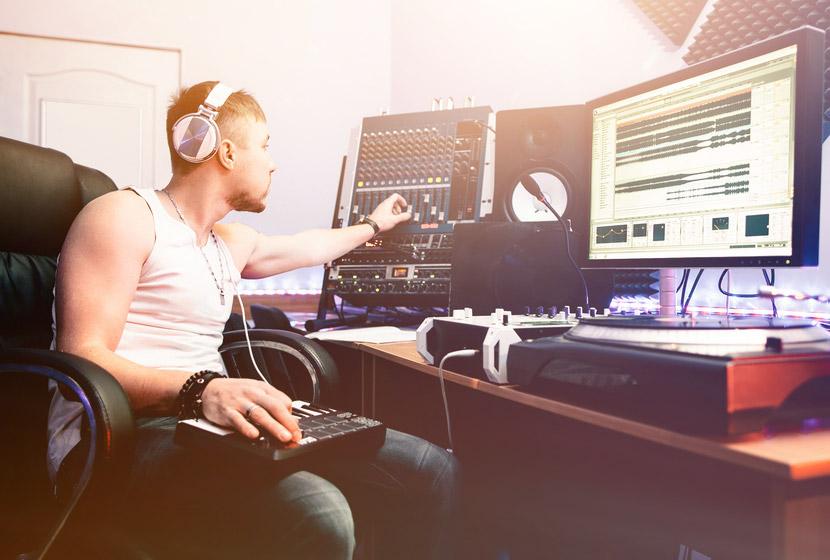Composing often starts on a basic computer, laptop or desktop - Mac or PC. It's all about practicality and how much you can afford. As your finances improve and you develop your own style, you will certainly want to improve your hardware set-up.
A computer is now a basic requirement for any set up. There are three types of approach:
- Some people do everything on the computer, using virtual effects and synthesizers.
- Others prefer to use a control panel connected to their computer, with interfaces such as Native Instrument and Ableton
- More traditional musicians prefers to use stand-alone equipment and synthesizers.
These three approaches can also be combined in different proportions.
Electronic music, however, originally started with synthesizers and bass lines. Legendary drum machines and synthesizers absolutely determined the sound of certain electronic styles.
The TR 808 and TR 909 drum machines created in the 1980s by Japanese manufacturer Roland are considered essential constituents of techno and house sounds. The Manchester group 808 State was named after the TR 808.
Also from Roland, the SH101 synthesizer is one of the most famous bass synths in electronic music, along with the Odyssey Arp and the Pro One from Sequential Circuits.
On top of this, there's a whole range of other effects machines and pedals for distortion, reverb, echo, etc. It's a consuming passion for those who succumb to it.


